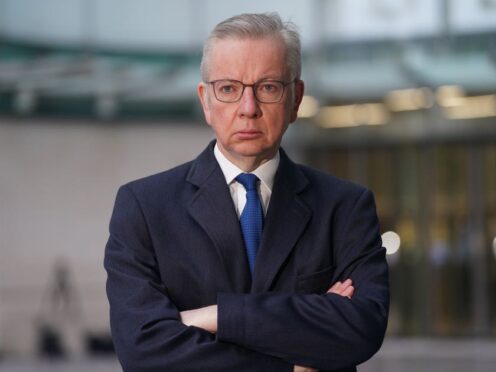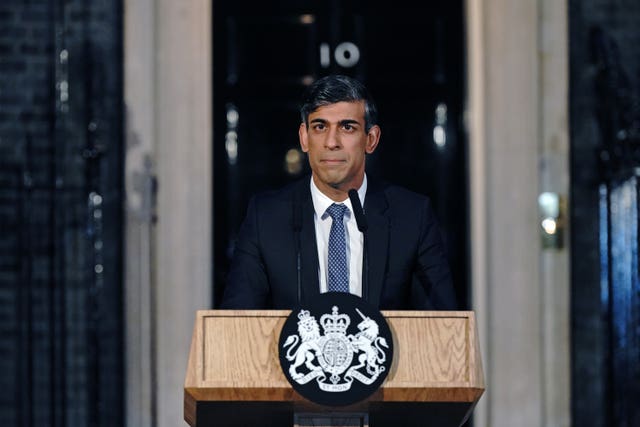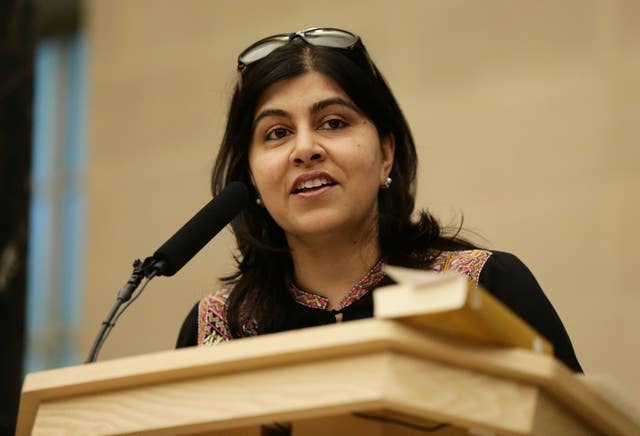
The Government has unveiled its new definition of extremism amid rising concern about threats to social cohesion and British democracy.
Groups covered by the definition, which is designed to include conduct that falls short of criminality but is still deemed “unacceptable”, will be denied access to Government funding and prevented from meeting ministers and officials or gaining a platform that could “legitimise” them through association with the Government.
The definition describes extremism as “the promotion or advancement of an ideology based on violence, hatred or intolerance” that aims to “negate or destroy the fundamental rights and freedoms of others” or “undermine, overturn or replace the UK’s system of liberal parliamentary democracy and democratic rights”.
It also includes those who “intentionally create a permissive environment for others to achieve” either of those aims.
The previous definition, published in 2011, described extremism as “vocal or active opposition to fundamental British values, including democracy, the rule of law, individual liberty and mutual respect and tolerance of different faiths and belief” as well as “calls for the death of members of our armed forces”.
Communities Secretary Michael Gove, who has overseen the formulation of the new definition, said the new definition would “ensure that Government does not inadvertently provide a platform to those setting out to subvert democracy and deny other people’s fundamental rights”.
He added that it was the first in “a series of measures to tackle extremism and protect our democracy”.
The new definition comes into force on Thursday, and the Government is expected to publish a list of organisations covered by it in the coming weeks.
Groups on the list will only be able to appeal against their inclusion by launching a judicial review in the High Court.

Labour said the new definition was “not enough” and called for a full counter-extremism strategy and hate crime action plan to “turn words into action that will keep us safe”.
Angela Rayner, the party’s deputy leader and shadow communities secretary, said: “Hateful extremism threatens the safety of our communities and the unity of our country – there is no place for it in Britain.
“Labour is steadfast in our commitment to work across communities to ensure no one feels unsafe at the hands of corrosive extremism.
“This is a serious problem that needs serious action and tinkering with a new definition is not enough. The Government’s counter-extremism strategy is now nine years out of date, and they’ve repeatedly failed to define Islamophobia.
“Any suggestion that the Government has been engaging with groups that they’ve now decided are extremists raises serious questions over why it has taken so long to act.”
The overhaul of the definition follows Rishi Sunak’s impromptu speech in Downing Street on March 1 in which he warned of “forces here at home trying to tear us apart”, although work on the definition has been ongoing for a number of months.
But the prospect of redefining extremism has also raised concerns that too broad a definition could threaten freedom of speech, worship and protest.
On Wednesday, the Archbishops of Canterbury and York issued a warning that the definition could “vilify the wrong people and risk yet more division” instead of “providing clarity or striking a conciliatory tone”.
But the Government has been keen to stress that it is a narrower definition than the 2011 Prevent version, and provides a “high bar” that “only captures the most concerning of activities” and is “not about silencing those with private and peaceful beliefs”.
Mr Gove said: “The United Kingdom is a success story – a multi-national, multi-ethnic, multi-faith democracy. It is stronger because of its diversity.
“But our democracy and our values of inclusivity and tolerance are under challenge from extremists. In order to protect our democratic values, it is important both to reinforce what we have in common and to be clear and precise in identifying the dangers posed by extremism.”

Lord Walney, the Government’s adviser on political violence and disruption, welcomed the new definition, saying: “Greater clarity in defining extremism can underpin a concerted approach across civil society to protect our country.”
But Conservative peer Baroness Warsi criticised the move, calling it a “divide and rule approach” intended to “breed division and encourage mistrust”.
The Muslim Council of Britain also attacked the proposals as “flawed”, warning that they were “undemocratic, divisive, and potentially illegal” and “may involve defining established Muslim organisations as extremist”.
Zara Mohammed, secretary general of the Muslim Council of Britain, said: “A broad cross-section of British society will see through the Government’s divisive extremism proposals.
“Extremism is a grave concern, and we all stand in opposition to it, despite the efforts of bigots to suggest otherwise through baseless accusations.”
She added: “With elections looming, it’s unsurprising that the Government is resorting to this desperate tactic in the culture war.”
Ms Mohammed endorsed the comments by the Archbishops of Canterbury and York, calling for a “comprehensive dialogue”.
She said: “Since its inception, the Muslim Council of Britain has championed the common good, urging its affiliates to make positive contributions to our nation, foster unity, and advocate for justice for all communities. These are the shared values of Britain, even if certain members of the Government fail to recognise them.”
Thursday’s announcement comes against a background of rising antisemitic and Islamophobic incidents since the October 7 attacks in Israel.
The Community Security Trust, which provides security for the Jewish community, recorded a 147% increase in antisemitic incidents in 2023, while the national project Tell Mama has recorded a 335% increase in anti-Muslim hate cases in the last four months.
Separately, a poll for the think tank More in Common found 25% of the public thought the UK was unsafe for Muslims and 35% thought it was unsafe for Jews.
Mr Gove added: “The pervasiveness of extremist ideologies has become increasingly clear in the aftermath of the October 7 attacks and poses a real risk to the security of our citizens and our democracy.
“This is the work of extreme right-wing and Islamist extremists who are seeking to separate Muslims from the rest of society and create division within Muslim communities.”
The More in Common poll, carried out between March 8 and 11, also found support for tougher action against those who promote hate or cause significant disruption during protests, but did not want to see protests banned altogether.
Luke Tryl, director of More in Common, said: “These findings should act as a wake-up call signalling that the public is deeply concerned about Islamist and far-right extremism, and they expect the Government, police and others to take action to tackle extremism and those who peddle hate.”

Enjoy the convenience of having The Sunday Post delivered as a digital ePaper straight to your smartphone, tablet or computer.
Subscribe for only £5.49 a month and enjoy all the benefits of the printed paper as a digital replica.
Subscribe